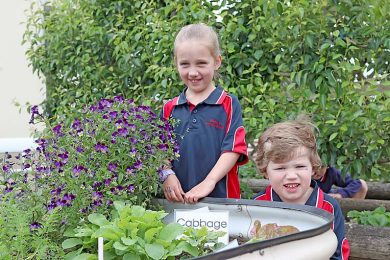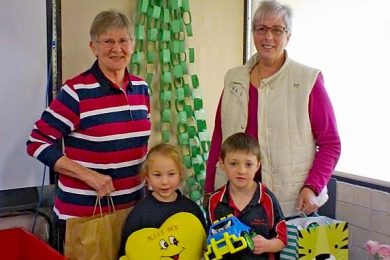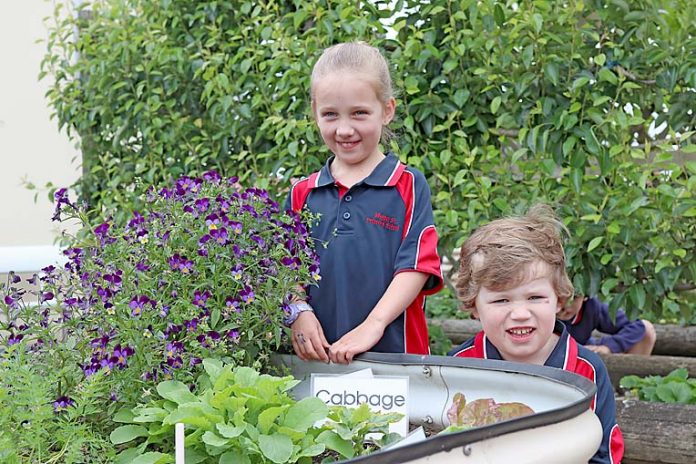
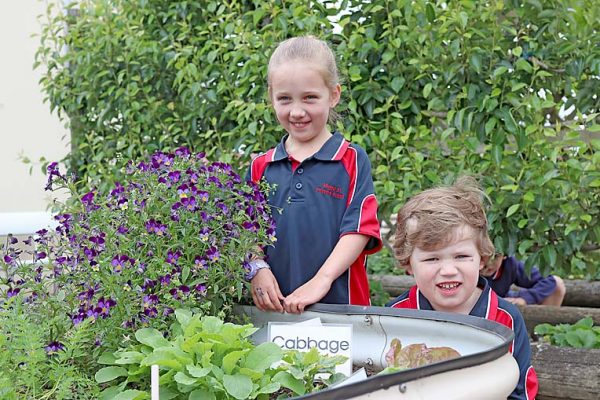
CHILDREN at Mulga Street Primary School have been busy getting their hands dirty as they develop sustainable practices for a renewable future.
More than 50 Reception students have been improving their understanding of waste over the past year and implementing environmentally friendly actions, from creating worm farms to donating unwanted toys to charity.
“Our sustainability projects are designed for children to understand we can handle waste in different ways and can reuse things,” Mulga Street teacher Gail Lewis told The Border Watch.
“Last term we did a whole series of looking at what waste is, the types of waste, what we do with our waste at school, what we do with it at home and then how we process our waste as a community.
“It is really about beginning an idea of what we can do with something we do not want any more and sustaining a renewable mindset.”
Students focused specifically on food waste last term.
“We started by looking at what waste we had in the school, including card, paper, plastic, food scraps and what we do with those types of wastes,” Ms Lewis said.
“Students created a worm farm and implemented sustainable gardening strategies.”
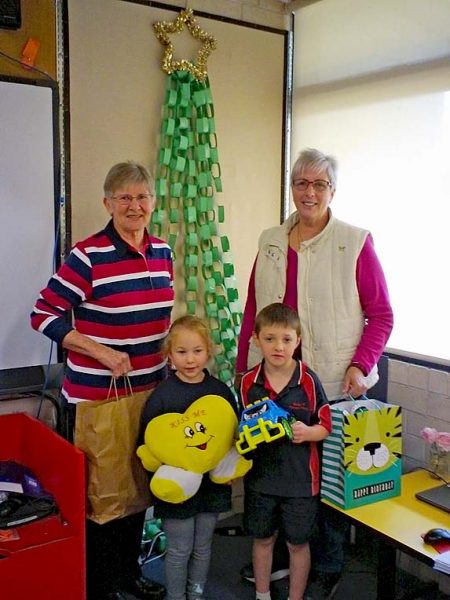
Action is being implemented throughout the school community, with senior year levels also involved in a food scrap program.
Students are now focused in term four on giving back to the community by donating previously loved toys to those in need.
“The toy drive idea arose from the book Franklin’s Christmas Gift involving a turtle at school and his class donating toys they no longer used,” Ms Lewis said.
“Instead of the toys going to landfill, someone else will receive the same joy and fun out of something they used to have.
“The students gave something they once loved in hope another child will receive the same degree of joy and pleasure.”
All toys were donated to Uniting Care and will be distributed around the South East community.
“I think children in need within the community will be most appreciative of these toys,” Ms Lewis said.
She said the project focused on learning to give to others without expecting anything in return.
“It is great to go with children’s ideas as they have brainstormed brilliant ways on how we can deal with waste,” she said.
“Linking it to the community is the important part and there are so many ways we can deal with waste apart from it going straight to landfill.”


